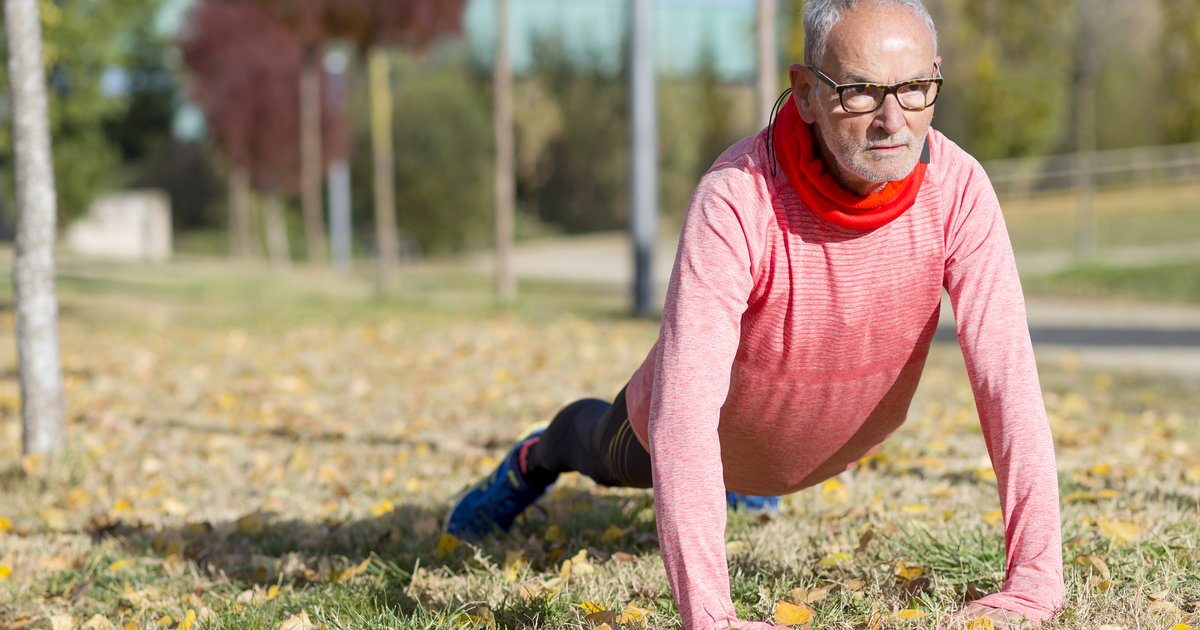If you think age-related decline is inevitable, think again. If you are an older adult in poor health and believe there’s no way to turn things around, check your beliefs.
Yes, there is a new study that supports the contention that it is never too late to start living healthy, and proves that even if you’re in poor health, a turnaround is indeed possible. Researchers call it reclaiming wellness, and there are examples of older adults who have done just that.
The encouraging results are found in data gathered from the Canadian Longitudinal Study on Aging, an effort that tracked 51,338 Canadians over 20 years to find the keys to longevity and health. Scientists were searching for the factors behind the physical, psychological, emotional and social well-being, as reported by adults over 60.
According to the study, “old age does not necessarily result in poor physical health, nor is a decline in well-being inevitable. Almost one in four respondents who were in less-than-optimal well-being at baseline regained well-being over the ensuing approximately 3 years.”
What will be of interest to older adults, and familiar advice to readers of this column, are the key factors to getting stronger at any age and slowing down the aging process.
Factors influencing well-being
One of the key findings in the Canadian research was the impact of mental health on participants’ ability to achieve optimal physical well-being. Researchers found that people in good mental health were five times more likely to get back to an optimal state of physical, psychological, social, and emotional well-being after three years.
So, what were the key factors that influenced whether an older adult regained optimal well-being? No surprise, scientists found that lifestyle had a major impact. The list is a familiar one. People who didn’t smoke (or quit), ate and slept well, and engaged in aerobic and strength training exercises got healthier and stronger.
Another key factor discovered by researchers was an interest in personal growth and learning. Taking classes and encore carers were among the tactics found to contribute to the well-being of these older adults.
The Canadian findings lend further support to the incredible power of lifestyle in promoting longevity and healthy aging. They very much mimic what Dr. Eric Topol as reported in his book “Superagers.” Topol studied 1,400 people 85 and older and in good health to see if their good health was due to good genes. He referred to them as “the Wellderly.” Though Topel didn’t find any factors in their genes to attribute their good health, he did find other differences.
The Wellderly were thinner, exercised more, were more optimistic and had more robust social lives. Topel concluded that “nothing surpasses regular exercise for the promotion of healthy aging” and further suggested that exercise is “the single most effective medical intervention we know.” It’s a powerful endorsement of the Canadian study and a clear message to people of all ages.
Further demonstrating that it’s never too late to adopt healthy habits is a 2024 study that examined the lifestyles of 5,222 people 80 and older. The research found a healthy lifestyle late in life still offers benefits. The habits that had the most impact on longevity were diet, exercise, and not smoking. Participants who lived to 100 consumed the greatest amounts of fruits, vegetables, fish, beans and tea. The centenarians never smoked and engaged in regular exercise, including running and qigong — a traditional Chinese medicine practice.
Finally, a 2023 study of more than 700,000 U.S. veterans found that “people who adopt eight healthy lifestyle habits by middle age can expect to live substantially longer than those with few or none of these habits.” The habits included: being physically active, being free from opioid addiction, not smoking, managing stress, having a good diet, not regularly binge drinking, having good sleep hygiene, and having positive social relationships. Scientists predicted that men with all eight at age 40 would live an average of 24 years longer than men without the habits.
The running nun
If there was ever a case study that proves the points of these studies, it’s Sister Marion Irvine, a Dominican nun who died Aug. 30 at 95. Sister Marion decided to take up running in 1978, when she was 48, overweight and addicted to cigarettes. By the 1980s Sister Marion was a media sensation. She started jogging but quickly found that she was a gifted runner and qualified for the 1984 Olympic trials and made history when she was 54.
Known as the Running Nun and a teacher by training, Sister Marion’s story is also one that shows the benefits of integrating social engagement and physical activity. She was active as a public speaker and enjoyed an engaging role in the running world. But it was her advocacy for social justice causes, like her opposition to the death penalty, which represented another outlet for her energy.
The combination of her physical pursuits and intellectual stimulation proved to be a great platform for her longevity — in addition to her deep faith. Yes, the Dominican sisters is the last place one would look for a model of physical turnaround, but Sister Marion proved that with the right motivation anything is possible.
Driving home the point
The Canadian study is the latest installment in a growing body of science that keeps confirming the benefits of a healthy lifestyle. These studies not only reinforce the value of diet and exercise, but they also include the importance of mental well-being and the huge interplay of mental and physical health. To this platform, the research extends into the social sciences and the importance of socialization and personal growth — a point of extreme importance as the negative impacts of loneliness becomes better understood.
The bottom line? For those of us over 50, the evidence is clear. It’s never too late to “get healthy.” For those who may believe that there is no way to crawl out of your sedentary lifestyle and get to a state of personal well-being, you’re simply wrong. And, for those under 50, take heed. Healthy habits are good at any age. The sooner you engage, the better.
No matter your age or gender, the playbook is well developed and the stories of success bear witness to its effectiveness. Give it a try. It’s never too late.
Louis Bezich, senior vice president and chief administrative officer at Cooper University Health Care, is author of “Crack The Code: 10 Proven Secrets that Motivate Healthy Behavior and Inspire Fulfillment in Men Over 50.” Read more from Louis on his website.


